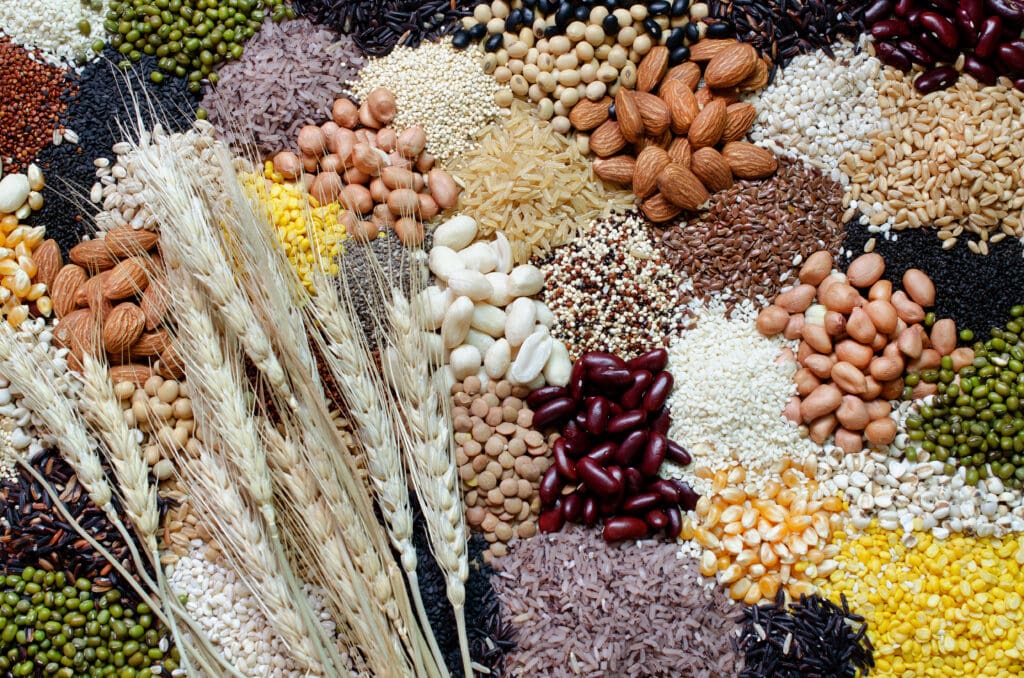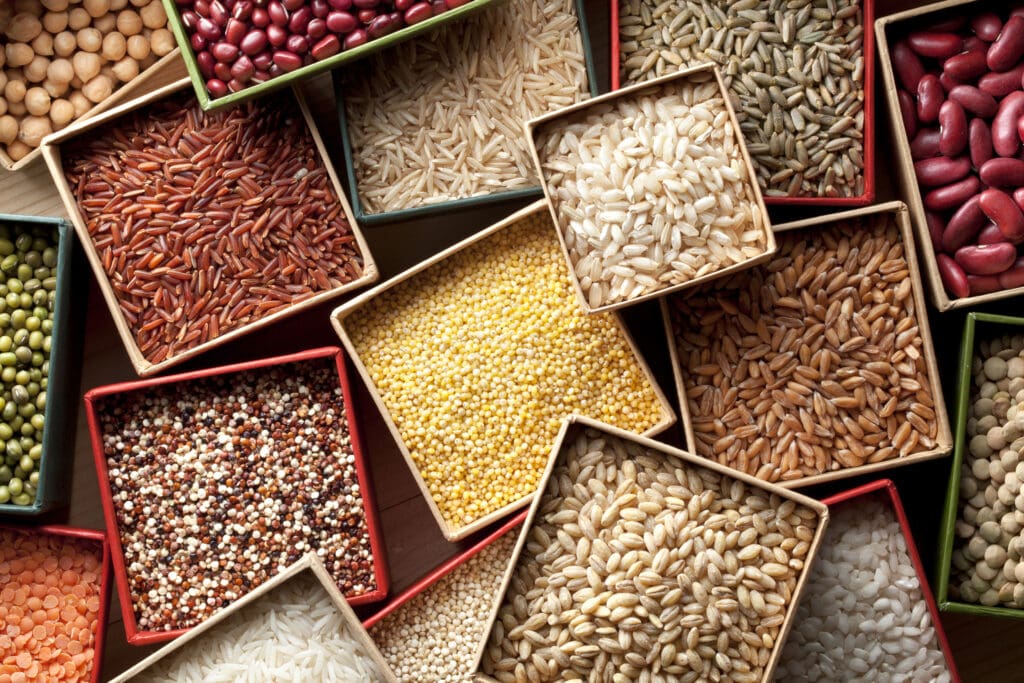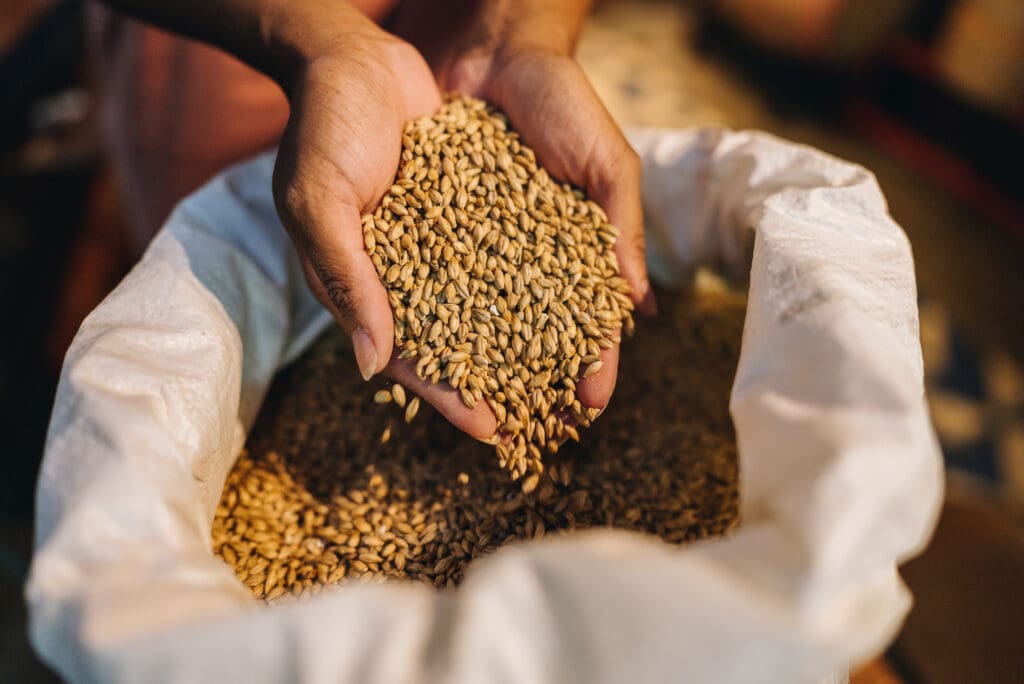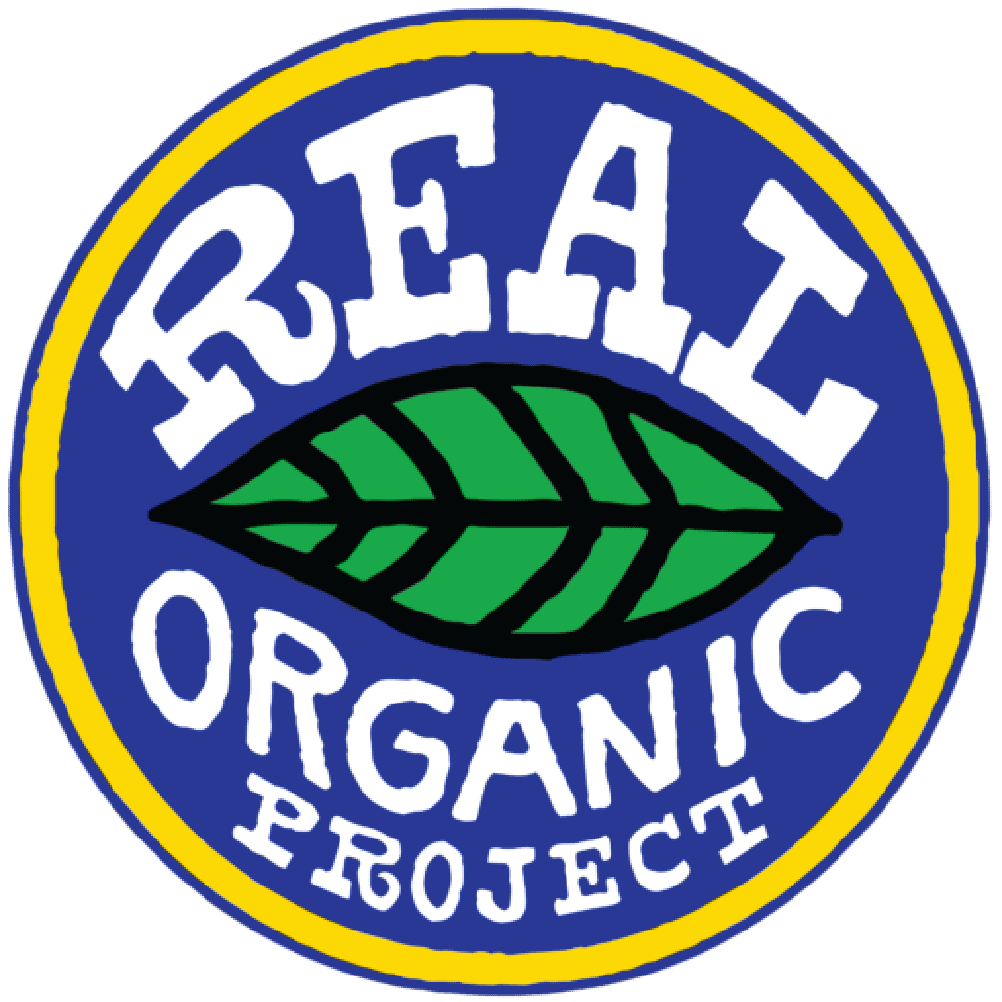In today’s health-conscious world, many consumers are making the switch to organic grains. But what makes these grains so beneficial, and why does it matter? Unlike conventionally grown grains, organic grains are cultivated without synthetic pesticides, herbicides, or genetically modified organisms (GMOs). To be labeled as ‘certified organic’, these grains must meet rigorous government-regulated standards, ensuring they contain at least 95% organic ingredients and undergo annual recertification. This results in a cleaner, more nutrient-dense product that supports both individual well-being and environmental sustainability. In this article, we’ll explore the many health benefits of organic grains and why choosing them can positively impact your health.

Organic grains are cultivated using organic farming methods that prioritize environmental sustainability and human health. These methods exclude synthetic fertilizers, pesticides, and genetically modified organisms (GMOs), ensuring that the grains are free from harmful chemicals. Additionally, organic grains are not subjected to irradiation or sewage sludge, further enhancing their purity.
The USDA’s organic certification program ensures that grains labeled as organic meet stringent standards. This certification covers a variety of grains, including brown rice, oats, quinoa, millet, and buckwheat. These grains are not only rich in dietary fiber, vitamins, and minerals but also offer numerous potential health benefits. For instance, the high fiber content in organic grains supports digestive health, while their complex carbohydrates help in better blood sugar control. By choosing organic grains, you are opting for a cleaner, more nutritious food source that supports overall well-being.

Organic whole grains offer a wealth of nutritional advantages over their conventionally farmed counterparts. These grains retain their natural fiber, vitamins, and minerals, which are often stripped away in processed foods. Eating organic grains supports better digestion, heart health, and overall wellness.
Additionally, whole grain foods help regulate blood sugar levels, reducing the risk of type 2 diabetes. They are naturally high in complex carbohydrates, which provide sustained energy and keep you feeling full longer. This makes whole grain foods an excellent choice for individuals looking to maintain a healthy weight while avoiding blood sugar spikes. Choosing organic whole grains for health ensures that you get a nutrient-rich diet without harmful additives.

The primary difference between organic and non-organic grains lies in the way they are grown. Organic grains are free from harmful synthetic chemicals, which means they contain fewer pesticide residues. This is crucial for individuals looking to reduce their exposure to toxins and maintain a cleaner diet. Additionally, organic farming practices enrich the soil, leading to more nutrient-dense crops.
Conventional grains, on the other hand, are often exposed to synthetic fertilizers and pesticides, which can leave harmful residues. Research suggests that long-term consumption of such chemicals may contribute to chronic health issues. Refined grains are stripped of their bran and germ during processing, reducing their nutritional value compared to whole grains. By selecting organic grains over conventional grains, consumers can enjoy a purer, more wholesome food source while minimizing their intake of unwanted toxins.
One of the most compelling reasons to consume organic grains is their impact on gut health. Whole grains, such as organic oats, quinoa, and brown rice, are rich in dietary fiber, which promotes healthy digestion. Regular whole grain consumption supports digestive health and prevents digestive disorders. Fiber aids in regular bowel movements, prevents constipation, and feeds beneficial gut bacteria. This makes organic grains and gut health an important connection for overall digestive well-being.
The prebiotic properties of organic grains further enhance gut microbiome diversity, which is essential for optimal digestion and immune function. A well-balanced gut microbiome supports better nutrient absorption, reducing bloating and discomfort. Incorporating organic whole grains for digestive health into your daily diet can help maintain a healthy gastrointestinal system and prevent digestive disorders.

Studies show that consuming organic whole grains can lower the risk of heart disease. These grains contain high levels of antioxidants and essential nutrients like magnesium and B vitamins, which contribute to better cardiovascular health. Regular consumption of organic grains for heart health has been linked to reduced cholesterol levels and improved blood pressure regulation.
Soluble fiber found in organic grains helps reduce LDL cholesterol (the “bad” cholesterol) and supports arterial health. Whole grains like organic barley and oats are particularly beneficial for maintaining heart function and preventing cardiovascular diseases. By choosing heart-healthy organic grains, individuals can improve circulation and reduce their risk of stroke and heart attacks.
Incorporating whole grains into your diet can play a significant role in reducing the risk of certain types of cancer, such as colon, breast, and prostate cancer. The fiber, antioxidants, and phytochemicals found in whole grains like brown rice, oats, and quinoa help protect cells from damage, reduce inflammation, and improve insulin sensitivity. These protective effects are crucial in lowering cancer risk.
A diet rich in whole grains also promotes healthy weight management, which is another factor in cancer prevention. Maintaining a healthy weight can reduce the risk of various cancers and improve overall health. Additionally, choosing organic whole grains may further minimize cancer risk by reducing exposure to pesticides and other harmful chemicals commonly found in conventionally grown grains. By opting for organic whole grains, you are making a proactive choice for your long-term health.
Organic grains are often richer in antioxidants compared to conventionally grown grains. Organic foods, including grains, are richer in antioxidants, which help combat oxidative stress in the body, reducing the risk of chronic diseases like cancer and diabetes. Choosing grains that are free from pesticides and rich in antioxidants supports overall well-being and long-term health.
Antioxidants such as phenolic acids, flavonoids, and selenium in organic grains play a crucial role in neutralizing harmful free radicals. This protective effect not only reduces inflammation but also supports brain health and cognitive function. Making the switch to organic grains for better nutrition provides essential phytonutrients that contribute to disease prevention and longevity.

Organic farming methods significantly enhance the quality of grains by boosting their nutritional content and reducing exposure to harmful chemicals. Organic grains often contain higher levels of antioxidants, vitamins, and minerals compared to their conventionally grown counterparts. This nutritional superiority is a direct result of the sustainable practices employed in organic farming.
Organic farming promotes soil health through techniques like crop rotation, composting, and biological pest control. These methods not only conserve water and energy but also maintain biodiversity, contributing to healthier and more resilient crops. By avoiding synthetic chemicals, organic farming reduces the risk of pests and diseases, resulting in grains that are not only more nutritious but also safer to consume. Choosing organic grains supports these sustainable practices, ensuring a steady supply of high-quality, nutrient-dense foods for future generations.
If you’re looking to incorporate more organic grains into your diet, consider these nutrient-packed options:
In addition to their health benefits, organic grains offer versatility in cooking. From breakfast porridges to hearty grain bowls and baked goods, these grains can be easily incorporated into a balanced diet. Opting for organic whole grains for meals ensures that you maximize their nutritional benefits while enjoying a wide range of culinary options.
Beyond personal health, organic grains play a significant role in environmental sustainability. Organic farming preserves soil health, reduces water contamination, and supports biodiversity. By choosing organic grains over non-organic grains, you’re contributing to a healthier planet while nourishing your body with cleaner, more nutritious foods.
Sustainable farming methods used for organic grains improve soil fertility and reduce carbon emissions, making them an eco-friendly food choice. Supporting organic grains and sustainable agriculture helps mitigate climate change effects while ensuring a steady supply of high-quality, nutrient-dense foods for future generations.

If you’re wondering why organic grains matter, the answer is clear: they offer superior nutrition, improved digestion, heart health benefits, and reduced exposure to harmful chemicals. Additionally, organic food, including grains, provides overall benefits for health and the environment by promoting sustainable farming practices and reducing pesticide use. By incorporating more organic whole grains into your diet, you’re making a positive choice for your health and the environment.
Are you ready to experience the benefits of organic grains firsthand? Start small by swapping out conventional grains for organic alternatives and enjoy the health benefits that come with this mindful change!









Sign Up for Exclusive Updates, Current Events, Recipes, and Special Offers and more!